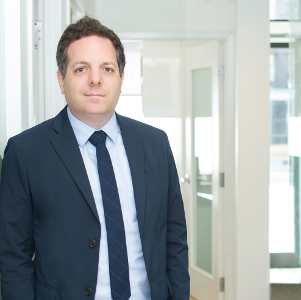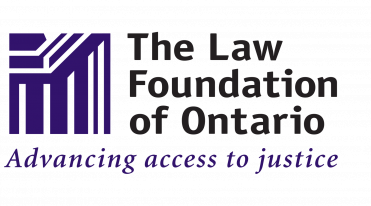Catalyst grant supports John Howard Society of Ontario civil legal needs assessment
For many people, being released from jail is not just the end of their incarceration, it’s the beginning of a challenging journey to re-integrate into society. Many have no home to return to, no source of income, and are in poor mental or physical health.
“Someone who’s been incarcerated may have been evicted from where they used to live because they didn’t pay their rent while they were in jail. All of their belongings and ID may be gone too,” says Robbin Savage, Director of Risk Management Services, John Howard Society of Kawartha Lakes & Haliburton. “If they have nowhere to live and no source of income, we start there.”
The John Howard Society of Ontario (JHSO) is a nonprofit justice organization with 19 local offices throughout Ontario. It works to help reduce crime and its causes by providing effective, just, and humane services to people who have been in conflict with the law. The local offices, like the one Robbin works out of, provide a range of services such as court support services, pre-release planning, transitional housing, counselling, anger management training, and education and employment supports.
“We’re not arguing the incarceration; it’s about getting them back into the community and on the right track, stabilizing mental health issues, finding them housing, and dealing with related legal issues,” says Robbin.
To do so, Robbin works closely with Lisa Loader, a staff lawyer at the Community Legal Clinic – Simcoe, Haliburton, Kawartha Lakes. “These people are in crisis and they don’t always understand what the law is, or how it can work for them,” says Lisa. “We need to connect with them right away and help in any way we can.”
Robbin and Lisa recently helped a young man who, upon release, had no place to live. When Robbin met him, she identified services to support him and contacted Lisa. Lisa helped him to request a recalculation of his Basic Income payment and to apply to the Ontario Disability Support Program. With a steady income, Robbin was able to help find him stable housing close to his social supports.
We don’t often think about access to housing and government-assistance as legal needs, but they are. These types of “everyday” legal needs are called civil legal needs, which refer to legal issues that fall outside the sphere of criminal justice. Civil legal issues are often disruptive to people’s daily lives and can impact someone’s access to things such as employment, housing, and government assistance. When civil legal needs are not met, they compound people’s problems, and, in worse cases, can lead someone back to incarceration.
Given the importance of understanding civil legal needs, JHSO recently examined the differences in services being offered across its local offices. It believes its staff, clients, and access to justice overall, could be better served if JHSO had a provincially-coordinated program that could assess, evaluate, and coordinate its services. JHSO is doing a needs assessment to scope the unmet civil legal needs of incarcerated, recently released individuals, and other at-risk clients, to determine how they could be more effectively and consistently supported, and to develop best practices for its frontline staff or ‘trusted intermediaries’.
The Foundation has provided about $127K in project grants to JHSO since 2012 and in 2018, JHSO was one of 20 organizations approved for the Foundation’s new, multi-year core funding Catalyst program. The Catalyst funding is making JHSO’s needs assessment initiative possible.
The goal of the Foundation’s Catalyst program is to strengthen the nonprofit justice sector by helping to give organizations stability and the opportunity to innovate, evolve, and respond to emerging needs. At just over $5.8M per year, the inaugural Catalyst granting represents a planned investment of more than $17M over the three-year granting cycle into Ontario’s nonprofit justice sector.
“At the ground level, we’ll be able to better understand and address the needs of our clients and the overlapping issues they face,” says Jonathan Robart, Legal Program Developer at JHSO’s Centre of Research, Policy & Program Development, who is leading the assessment. “This is about developing an understanding of how the civil legal needs of our clients intersect with other barriers to re-integration, in particular when it comes to access to justice. At the large-scale level, we want to create a program that can be replicated and adapted across all our offices.”
Ultimately, JHSO’s initiative is about giving people the information and services they need to successfully reintegrate into their communities. “It will build our capacity to identify our clients’ legal needs and to improve our work as trusted intermediaries,” says Robbin. “It will be of huge benefit to our clients.”



